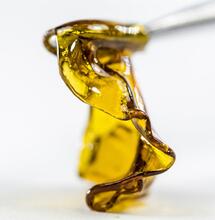Medicinal Cannabis and the Immune System

Research is continuously showing us that cannabis has benefits in managing certain medical conditions, but how does cannabis affect the immune system? Does regular use weaken or boost your immune system? or leave you more or less prone to infections or contagious diseases?
Existing evidence indicates that cannabis can repress immune system operation. This may be advantageous for those with autoimmune illnesses. Still, it may not be as helpful for people with typically functional immune systems.
The immune system is a sophisticated network within the body. A group of specialized cells, endogenous chemicals, and organs work together to protect against pathogens and infections, which in turn protects the health and homeostasis of the body.
The immune system is multifaceted, and its core components that actively combat infection include white blood cells, antibodies, the lymphatic system, the spleen, the thymus, and bone marrow.
Current knowledge about how cannabis interacts with specific immune elements is limited. There is some research available which explores the impact of cannabinoids on the count of white blood cells as well as the lymphatic system. There is less, however, on the way cannabis influences the thymus or the complement system.
There is a connection between the endocannabinoid system (ECS) and its immune system. The ECS is generally regarded as a gatekeeper of the immune system, deterring the onset of overwhelming inflammatory reactions that may result in disease. The ECS can also impact the role of immune cells.
The CB1 and CB2 receptors that make up the endocannabinoid system work to moderate the effects of cannabis within the immune system. The two major cannabinoids, THC and CBD, appear to have distinct effects on the immune system due to their distinctive interactions with cannabinoid receptors. Research suggests that cannabinoids influence the functions of most kinds of immune cells.
Like CBD, THC also represses immune activity, dialling down inflammatory reactions. THC has also been shown to vary the function of immune cells accountable for antimicrobial activity.
While the immunosuppressive effects of cannabis may be an advantage for autoimmune patients, they can cause difficulties for others.
Research carried out in 2003 on fit volunteers indicates that cannabis may suppress immune function. Cannabis users were found to have fewer pro-inflammatory cells and more anti-inflammatory cells.
While less possibility of inflammation may sound positive, it was also associated with a notable reduction in white cell functionality in this case. Inferior white cells can decrease the ability to fight off infections. Regular cannabis users also had a lower amount of natural cells that limit the reach of tumours and microbial infections.
Research has revealed that there may be a dose-response relationship between cannabis use over a person's lifetime and a decline in distinctive immune system markers, meaning that those who use cannabis regularly may be more sensitive to the advancement of infectious disease.
Cannabis may substantially lower infection-fighting cells in people undergoing chemotherapy, further adding to the harmful effects of chemotherapy on the immune system.
Research on people with HIV+ and AIDS suggests that there is no firm proof that cannabis adversely affects the immune process.
Instead, findings suggest that cannabis use among HIV+ patients may improve the immune system by causing a notable decrease in viral load and an upsurge in CD4 cells, which can be viewed as a marker to indicate the immune system's robustness.
While existing research permits some understanding of cannabis and the immune system, there is currently inadequate research on the subject to make firm findings.
More on this topic from Soft Secrets:






